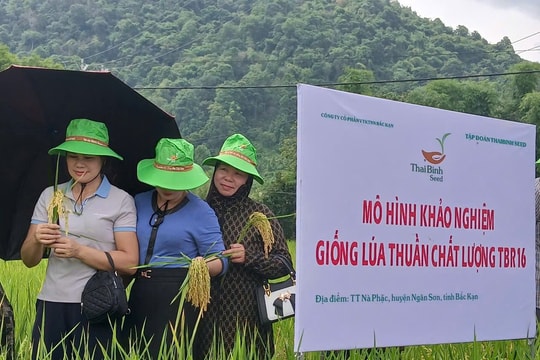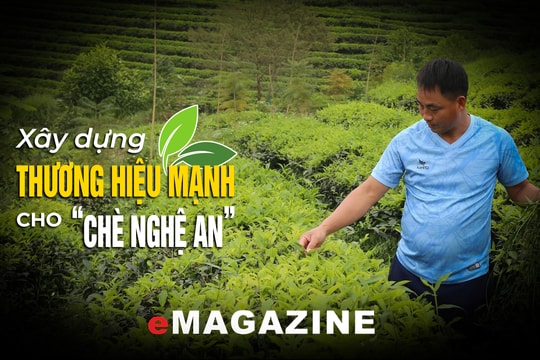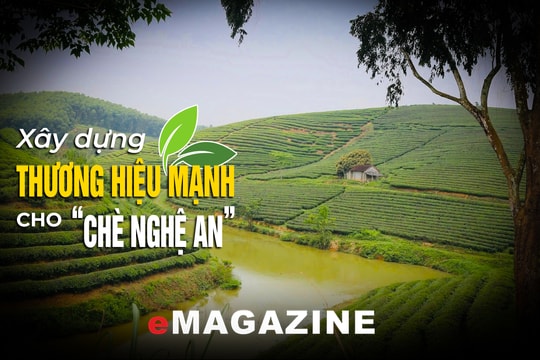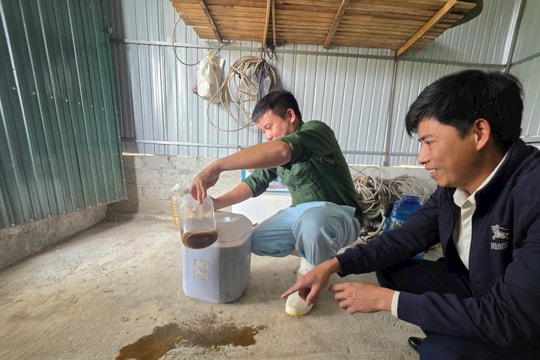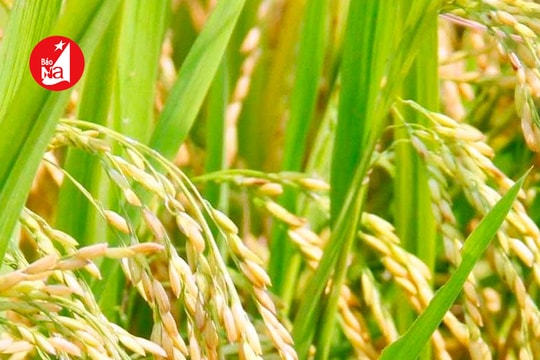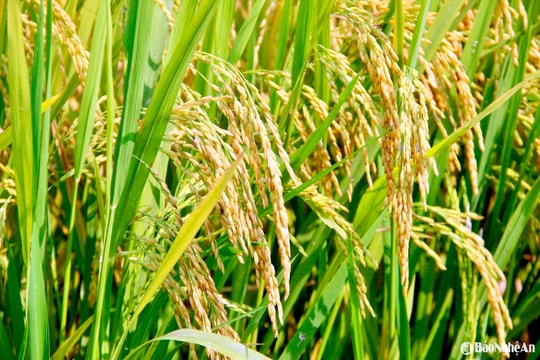Vietnamese organic meat, shrimp, fish... attract foreign investors
The demand for organic agricultural products is huge but the supply is limited.
Organic agriculture is a global trend and brings many business opportunities for Vietnamese enterprises and farms. That is the opinion of delegates at the workshop "Identifying Vietnamese organic agricultural products - Development trends and promoting production and consumption linkage", organized by the Ministry of Agriculture and Rural Development in coordination with the Ministry of Science and Technology in Ho Chi Minh City on May 12.
Organic Order Rush
At the workshop, many partners from Japan, Germany, the European Union (EU)... signed cooperation agreements on production and consumption of products produced according to organic standards (no chemicals, antibiotics...) with Vietnamese companies. For example, a Japanese partner ordered eight containers of organic coriander at a high price. Many customers from the EU also ordered meat, fish, carrots, radishes, tomatoes... from Vietnamese companies.
Regarding this issue, Mr. Nguyen Ba Hung, Director of Organik Da Lat Joint Venture Company, commented: “The demand for organic food in many countries is very large and this is a good export opportunity for domestic companies. For example, if Vietnamese partners meet the quantity of foreign customers, 1 hectare of vegetables can earn 500,000-1 million USD”.
According to Mr. Hung, there are many export orders but the output is difficult to meet because the farming area that meets organic standards is not much. "Currently, we only have more than 150 organic products such as vegetables, rice, shrimp, fish... However, customers in other countries are very picky, they like many products so we have to diversify our products" - Mr. Hung noted.
Hung Thinh Company Limited (Tay Ninh) said it has cooperated with a German company to raise organic fish and shrimp for export to this country. The company has also built a farm with an area of over 1,500 hectares to serve the production of organic products. "The European Chamber of Commerce in Vietnam (Eurocham) has also proposed to cooperate with Vietnamese companies in the field of organic production," the company representative added.
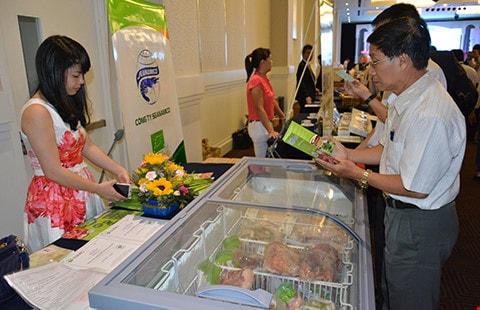 |
| Organic products are increasingly popular. In the photo: Customers are buying organic products at a store in Ho Chi Minh City. |
Vien Phu Company has joined hands with a Japanese company to produce organic rice, shrimp, fish, etc. for export to Japan. Mr. Vo Minh Khai, General Director of this company, added: “In the near future, there will be about seven partners from Japan working with us to discuss cooperation in developing organic products. Not only that, they have also planned to promote and market Vietnamese organic products in Japan.”
Notably, a representative of a Thai corporation said that the demand for organic products in this country has increased sharply in recent years with a growth rate of more than 8%/year. However, the production supply is not enough to meet the demand, so Thai enterprises are planning to import organic products from Vietnam.
“To ensure organic standards and create trust for consumers, we will ask an independent inspection unit to monitor and certify organic standards for agricultural products produced on farms in Vietnam,” said a representative of the Thai group.
Join hands to export
Mr. Le Thanh, an expert on organic food, commented that although domestic and export demand is very large, the difficulties that organic production is facing are unreasonable land policies, lack of capital and lack of technology. In particular, there has been no connection between production units and associations for a long time and the brand of Vietnamese organic products has not been built.
“To overcome the above limitations, the Ministry of Agriculture and Rural Development, the Ministry of Science and Technology, the Organic Agriculture Association and companies have built the model “Organic House - organic food”. This model will carry out main tasks such as linking, producing and consuming, signing contracts with international markets, and placing export orders” - Mr. Thanh shared.
Organic product manufacturers are also stepping up their links with retail systems. Mr. Pham Trung Kien, Deputy General Director of SaigonCo.op, said that in response to the increasing demand for organic products in the country, SaigonCo.op has decided to dedicate a dedicated area to display and introduce these products.
Deputy Minister of Agriculture and Rural Development Tran Thanh Nam informed that in the near future, the ministry will work with the Ministry of Science and Technology to establish a working group specializing in supporting and developing organic agricultural production. The working group will visit each company and farm to learn about difficulties and obstacles in order to find appropriate solutions.
“In addition, in the near future, the Ministry of Agriculture and Rural Development will conduct a working trip to European countries, Japan... to look for partners, thereby supporting businesses and localities with organic agricultural production,” said Deputy Minister Nam.
Users have many options to choose from. Organic food does not use chemical fertilizers, pesticides, chemical herbicides and does not contain growth stimulants or weight gainers. While other standards such as GlobalG.AP, VietGAP... allow the use of chemical fertilizers, pesticides, chemical herbicides but under control. Currently, the organic product market is quite diverse. In addition to vegetables, tubers, and fruits, there are also pork, chicken, beef, shrimp, fish, etc. with organic certification. The increasing number of organic products helps consumers have more choices at reasonable prices. Consumers can buy organic food at stores and supermarkets such as Co.opmart, Aeon Tan Phu or buy online. The State needs to have specific and breakthrough policies (land, credit, market...) to gradually transform from chemical farming to environmentally friendly production. Thereby meeting the trend of integration, competing with the world as well as improving public health. At the same time, it is necessary to plan the area for organic agriculture. Mr. LE THANH, organic food expert |
Legal
| RELATED NEWS |
|---|

